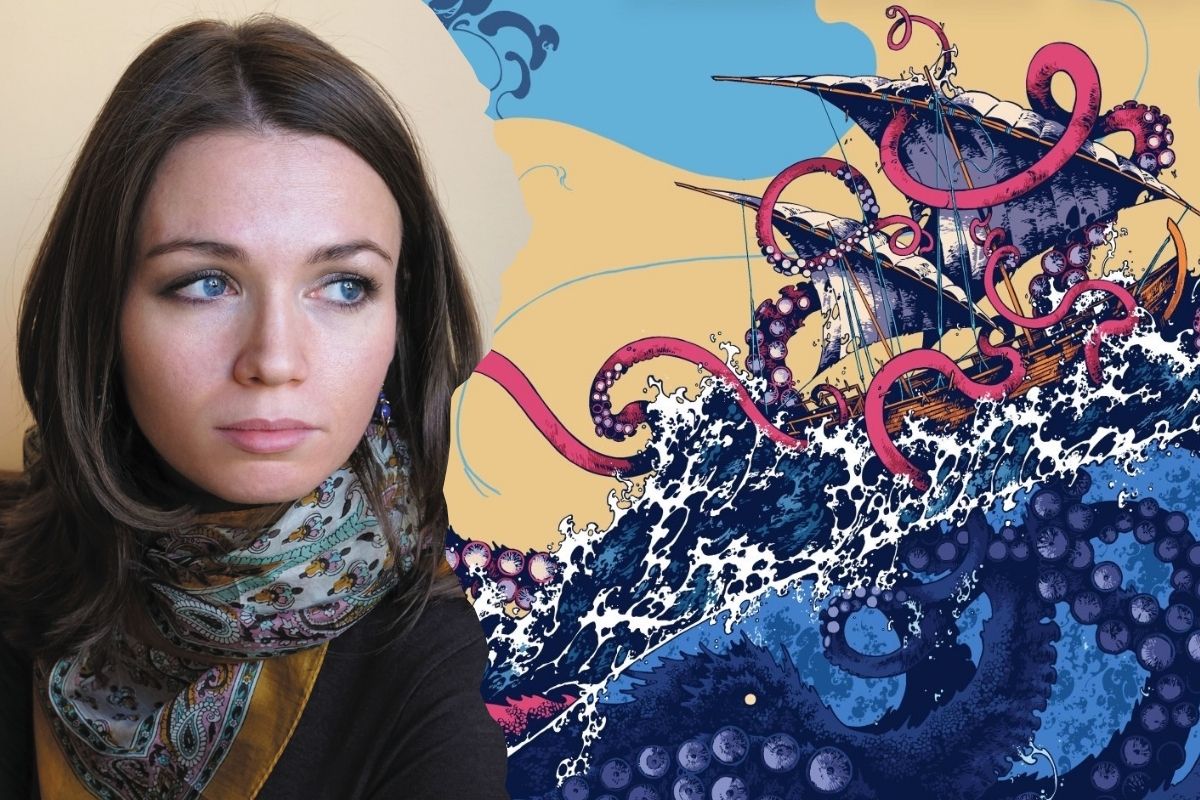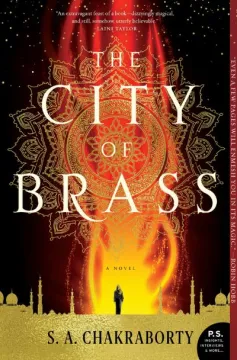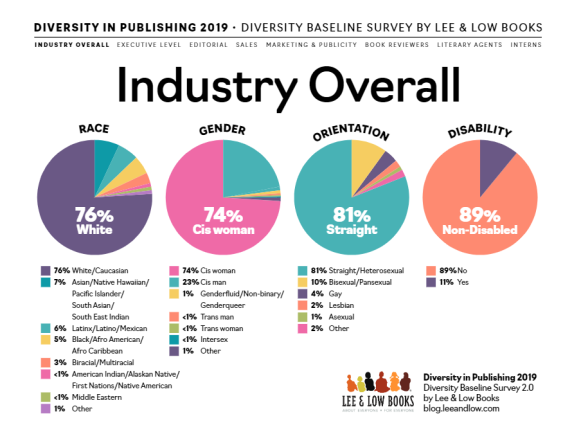The Significance Of S.A. Chakraborty’s Name Adjustment In Upcoming Book
It's more complicated than you'd think

If you’re like me and are super excited about S.A. Chakraborty’s first book since the Daevabad Trilogy, The Adventures of Amina al-Sirafi, you’ve probably noticed something different about the cover—other than how dynamic and differently illustrated it looks. Instead of going by her author name, it now says her first name, “Shannon.” I don’t have behind-the-scenes knowledge of the reasoning behind this. However, considering the historical and contemporary publishing landscape, as well as the space Chakraborty occupies, this is vital to see.
Up until her upcoming book, Chakraborty used her “author name” of “S.A. Chakraborty.” However, as she states on her website, she prefers to go by Shannon. Because I knew her gender before reading The City of Brass, I assumed that this name was to limit gender bias among science-fiction and fantasy (SFF) readers. Anytime I could pick my own book or author project growing up, I chose my now-fallen heroine J.K. Rowling. Publishers convinced her that boys would not pick up her book if it started with “Joanne.” So, they added a fake middle name and published the story under J.K. Rowling. This trend of gendered SFF selection persists among adults (including women), so I thought that was the source of the change. This might have been the influence, but it wasn’t her reasoning.
In a 2019 Reddit AMA Chakraborty explained, “I had the naive idea that it would somewhat protect my privacy.” After some harassment online (plus, she has a very uncommon name), she wanted that privacy. But around the time her first novel was sold, she realized that was unrealistic. Unfortunately, and very understandably, many people have taken issue with the fact that Chakraborty uses/used the semi-pen name. Some have gone as far as falsely claiming that she was trying to hide her race/ethnicity. This untrue accusation will never leave the author. However, the upcoming book will hopefully mark a change in that perception.
What’s In A Name

If you didn’t already know, Chakraborty’s academic and literary specialization is about the Arab world. All of her books, including the upcoming one, are firmly South West Asian & North African (SWANA) fantasy. Chakraborty is a white American woman who converted from Catholicism to Islam in her teens, so roughly twenty years ago. Her last name comes from her husband, who is also a convert. Most Muslims are Black or Arab (likely with SWANA heritage), but can be of any ethnicity, race, or nationality.
In the early 2000s, Chakraborty studied international relations and Middle Eastern history. However, like many other young professionals, she pivoted after the ’08 housing crash. What would become the Daevabad Trilogy was a sort-of history fan fiction based on her research. Reading Saladin Ahmed’s fantasy Throne of the Crescent Moon inspired Chakraborty to try publishing her fiction. SWANA and Muslim reviewers have found her work devoid of orientalism. In Traversing Tradition, Ibraheem Ali stated, “This book is written for the Muslim reader before anybody else, and woven into its world are nuances and terminologies that will resonate with said reader.”
This criticism has always existed, but more and more often, I’ve seen her grouped into the “problematic author” or “authors with a secret” discussion across social media. The former is subjective, though I’d argue she doesn’t apply. The latter is a lie because she doesn’t hide it. Other authors have hid behind a spouse to sell something (Jeanine Cummins) or excuse their racism (which I understand very clearly as a biracial person). There’s nothing to support the idea that it’s the case here.
As early as 2017, before the first book came out, Chakraborty has been very clear that she’s white and occupies a strange, privileged place as a white convert to Islam. In addition to its clear placement on her “about me” page, she corrects others for placing her novels in Arab #OwnVoices lists and nominating her for awards clearly for people of color.
Publishing’s problem

Often times, the publishing industry is to blame for mis-marketing a book or choosing to prioritize white voices over other stories (with a little bit of blame left for the author). After all, Lee and Low found in 2019 that less than 1% of publishing is Middle Eastern. However, ire aimed towards Chakraborty in subtweets and TikToks (which is rare, but I see it) is unfair. Publishing thrust her into this position of the “gold standard” in SWANA and Arabian Fantasy, and in response, she’s dropping a ladder down to everyone else behind her. She’s blurbing books from SWANA authors writing in fantasy because very little has come out in the American market. And on what feels like a weekly basis, she is pulling up Muslim creatives (mostly of color) with her so that they can share the success.
Sometimes this is through an Insta-Live convo, a shoutout online or at events, by commissioning art, or through a marketing event officially hosted by the publisher. Chakraborty has the spotlight on her and is always pulling up others she’s in community with—especially if they’re debut authors and authors of color. She also routinely pushed publishers to prioritize SWANA readers in ARC (advanced-reader copies) distribution of her and Muslim/SWANA peers’ work.

For members of communities who witness the media (from publishing to movies) choosing outside voices to tell your story, especially if you’re Arab or SWANA: you are well within your right to feel uncomfortable with the situation publishing perpetuates. While I believe she’s being honest and allied to non-white Muslims, etc., it’s not my place to say. I just appreciate how she uses the platform more easily afforded to her based on her privilege and navigates this in a way that is more than lip service. I’d wager the name change is to be more transparent than she already is. And the move itself was mostly available because the next adventure is an entirely new series.
(featured image: Melissa C. Beckman, Harper Voyager)
—The Mary Sue has a strict comment policy that forbids, but is not limited to, personal insults toward anyone, hate speech, and trolling.—
Have a tip we should know? [email protected]
